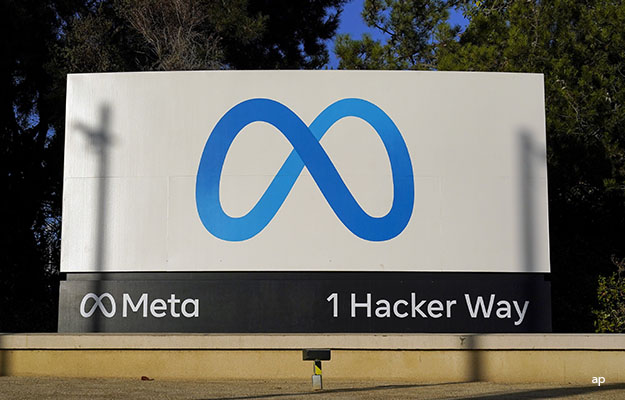
With inflation still raging, the outlook for interest rates unknown, and anxiety lingering over the banking crisis, some investors may be desperate for clarity - but trends can help lead the way.
Unfortunately, as market volatility continues into the second quarter of 2023, the economic outlook appears more unpredictable than ever. Amidst this uncertainty, differentiating between distracting noise and valuable signals can be tricky. Morningstar’s Chief US Market Strategist Dave Sekera explains that, in addition to investing in high-quality stocks at discounted prices, paying attention to what he calls “long-term structural trends” can help investors identify areas of the market well-positioned for growth. Secular trends are broad market movements that are relatively unaffected by day-to-day volatility. They are highly correlated to demographic changes, shifting consumer demand, and technological expansion. As Sekera points out, investing in secular growth trends limits downside risk since shares of companies whose revenues are tied to broader market themes should hold up stronger than their counterparts. Investing in long-term growth trends also provides investors with the fortitude and confidence necessary to stay the course during downturns, and potentially even add to deflated positions.
Three Secular Trends to Watch Now
1. The Transition to Electric Vehicles
Seth Goldstein, chair of Morningstar Research Services’ electric vehicle committee, forecasts that EVs will make up 30% of all new cars sold globally by 2030. While big-name auto manufacturers tend to attract the most media and investor attention, the EV transition holds potential for companies across the supply chain. Indeed, Morningstar’s Developed Markets Electric & Autonomous Vehicles Index, which includes semiconductor, specialty chemicals, and auto parts companies, has so far outperformed the broader Morningstar Developed Markets Index by more than 10% as of March 29th.
Luckily for Canadian investors, one domestic company is well-situated on the EV supply chain to benefit from this secular growth theme. As Sekera explains, lithium is an essential element for electric vehicle batteries and will likely be in high demand as the transition unfolds. “Based on the amount of lithium being mined today and the amount that they see coming out of production over time,” Sekera says, “we think lithium is going to be undersupplied for the next decade.”
Lithium Americas Corp (LAC), based in Vancouver, BC, is Morningstar’s top pick for lithium producers worldwide. The company has three projects under development set to enter production this year: Cauchari-Olaroz and Pastos Grandes, brine resources in Argentina, and Thacker Pass, a clay resource in Nevada. Morningstar forecasts these combined projects to produce roughly 150,000 metric tons of lithium per year on a LCE (lithium carbonate equivalent) basis by the end of the decade. As Goldstein explains, while demand growth outpaces supply in the coming years, lithium prices are likely to remain well above our long-term forecast at US$12,000 per metric ton through 2030. Lithium Americas will also benefit from a cost advantage, given that its two Argentinian brine resources enjoy lower total royalties and taxes compared to peer resources in Chile. Lithium Americas Corp is currently trading at a 61% discount, earning our highest five-star rating.
Another Canadian company well-positioned to profit from the EV transition is Magna International Inc (MG), a large auto parts and systems manufacturer based in Ontario. As Morningstar Senior Equity Analyst Richard Hilgert writes, this innovative, entrepreneurial company benefits from a wide product offering and high customer switching costs. Its business versatility sets Magna International apart, since many of its peers focus solely on a particular area of vehicle production. Magna, on the other hand, nearly has the capabilities to design, develop, supply, and assemble vehicles all on its own, according to Hilgert. Given its prowess in technological development, Magna stands to benefit from the auto industry’s transition toward electrification and automation. Magna International currently earns a four-star rating, trading at a 31% discount.
2. Medical technology
Another secular growth trend that Sekera identifies is medical technology, or “med-tech.” This theme includes all companies involved in the advancement of healthcare services and technology. As the baby boomer generation continues to age in the US, Sekera sees healthcare innovation as an increasingly addressable market. The med-tech growth trend offers particular potential in Canada, where the 65 and over age group expanded 18.3% between 2016 and 2021, compared to the 15-64 age group, which grew 2.5%.
Bausch & Lomb Corp (BLCO), a vision-care company based in Quebec, is poised to benefit from Canada’s aging population. The company’s revenue mainly comes from three business lines: contact lenses, surgical instruments, and pharmaceutical products used to treat eye conditions. As Morningstar Equity Analyst Keonhee Kim writes, “macro drivers, including an aging population, an increasing prevalence of myopia (nearsightedness), and a favorable product mix will all act as tailwinds for the business.” As more customers upgrade lens material, type, and modality (reusable to daily), Bausch & Lomb stands to profit from higher price tags and higher margins, Kim explains. The company earns a Narrow Economic Moat Rating due to valuable intangible assets, especially its technically advanced products, and the likelihood of long-term customer fidelity (high switching costs). Shares of Bausch & Lomb are currently undervalued, trading at a 33% discount.
3. Cybersecurity
Another key growth trend Sekera suggests that investors consider is cybersecurity technology. Given today’s heightened geopolitical tensions and the rising risk of cybercrime, Sekera predicts more companies and individuals prioritizing privacy and security. Indeed, given the potential monetary and reputational costs of suffering a ransomware attack, Sekera understands cybersecurity as “one of those areas in which management, even in a recession or downturn, is unlikely to cut costs.” This theory has proven accurate so far this year, with the Morningstar Developed Markets Technology and Communications Services Index maintaining steady growth even amidst market turmoil. The collection of stocks, which includes companies involved in cybersecurity software and IT services, has returned 17.71% YTD compared to the broader Morningstar Developed Markets Index, which has returned 5.35% as of March 29th.
One Canadian company stands out for its unique potential to benefit from both the secular trends in cybersecurity and vehicle automation. BlackBerry (BB), although once known for manufacturing smartphones, now focuses on end-to-end secure communication for the auto, government, and healthcare industries. As Morningstar Equity Analyst William Kerwin explains, “BlackBerry has positioned itself in rapidly growing markets that benefit from secular trends toward security and connectivity.” The company’s flagship product, Spark, harnesses both endpoint management (to monitor and control network access) and endpoint protection to prevent, detect, and respond to external threats. Although BlackBerry faces fierce competition in the cybersecurity space from giants such as Microsoft and Symantec, the firm has maintained its strong presence in the market. As the company diverts less sales revenue to operating expenses in the coming years, Morningstar anticipates BlackBerry’s margins to improve. BlackBerry shares are currently trading at a 20% discount.






















